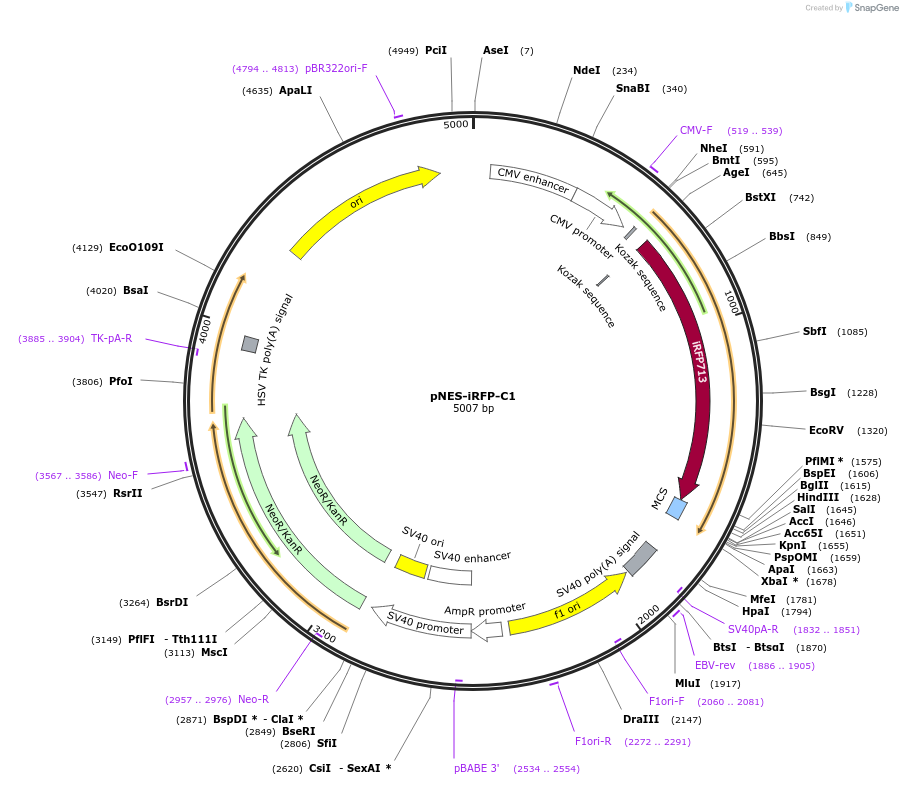pNES-iRFP-C1
(Plasmid
#116863)
-
Purposecytosolic iRFP
-
Depositing Lab
-
Sequence Information
Ordering
| Item | Catalog # | Description | Quantity | Price (USD) | |
|---|---|---|---|---|---|
| Plasmid | 116863 | Standard format: Plasmid sent in bacteria as agar stab | 1 | $85 | |
Backbone
-
Vector backbonepiRFP-C1
- Total vector size (bp) 5007
-
Vector typeMammalian Expression
-
Selectable markersNeomycin (select with G418)
Growth in Bacteria
-
Bacterial Resistance(s)Kanamycin, 50 μg/mL
-
Growth Temperature37°C
-
Growth Strain(s)DH5alpha
-
Copy numberHigh Copy
Gene/Insert
-
Gene/Insert nameiRFP713
-
Alt nameiRFP
-
SpeciesRhodopseudomonas palustris
-
Insert Size (bp)948
-
Tag
/ Fusion Protein
- X.leavis map2k1.L(32-44) (N terminal on insert)
Cloning Information
- Cloning method Restriction Enzyme
- 5′ cloning site NheI (not destroyed)
- 3′ cloning site HindIII (not destroyed)
- 5′ sequencing primer CMV-For
- 3′ sequencing primer SV40-pArev (Common Sequencing Primers)
Resource Information
-
Supplemental Documents
-
A portion of this plasmid was derived from a plasmid made byAddgene 54786
-
Article Citing this Plasmid
Terms and Licenses
-
Academic/Nonprofit Terms
-
Industry Terms
- Not Available to Industry
Trademarks:
- Zeocin® is an InvivoGen trademark.
Depositor Comments
Please visit https://www.biorxiv.org/content/early/2018/09/06/410811 for bioRxiv preprint.
These plasmids were created by your colleagues. Please acknowledge the Principal Investigator, cite the article in which the plasmids were described, and include Addgene in the Materials and Methods of your future publications.
-
For your Materials & Methods section:
pNES-iRFP-C1 was a gift from Gerry Hammond (Addgene plasmid # 116863 ; http://n2t.net/addgene:116863 ; RRID:Addgene_116863) -
For your References section:
A high-avidity biosensor reveals plasma membrane PI(3,4)P2 is predominantly a class I PI3K signaling product. Goulden BD, Pacheco J, Dull A, Zewe JP, Deiters A, Hammond GRV. J Cell Biol. 2019 Mar 4;218(3):1066-1079. doi: 10.1083/jcb.201809026. Epub 2018 Dec 27. 10.1083/jcb.201809026 PubMed 30591513






